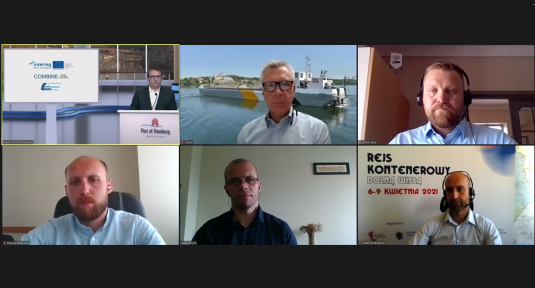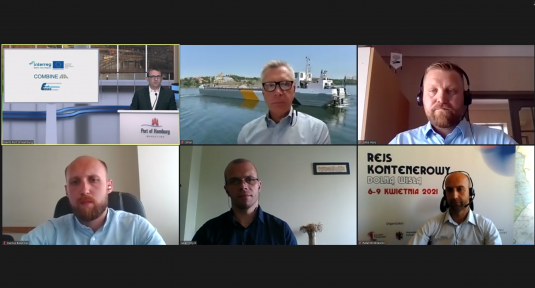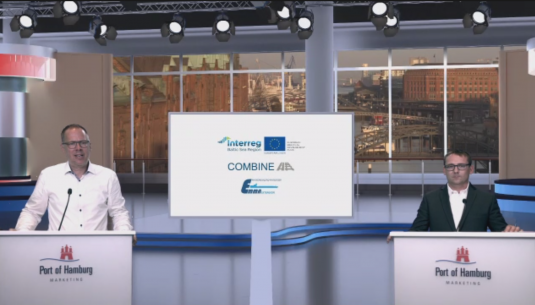

EMMA Extension informed about final results!
Joint actions are needed to shift to more sustainable transport modes and to enhance multimodality. Since 2019, EMMA Extension and COMBINE projects have promoted and strengthened inland waterway transport and combined transport in the Baltic Sea Region with the help of their European stakeholders. Around hundred of them participated in the joint final conference “Baltic Sea Region – Future Forerunner in Sustainable Transports” which emphasized the role of inland waterway transport and combined transport in supporting decarbonisation of the transport sector.
Achieving the ambitious climate goals requires a shift to more environmentally friendly modes of transport, such as rail and inland waterways. In her keynote speech Maria Koidu from European Commission’s Directorate-General for Mobility and Transport highlighted the ambitious goals of European Green Deal as well as the European Commission’s Sustainable and Smart Mobility Strategy which aims to increase the capacity of non-road modes. She emphasized the modal shift and a bigger uptake of multimodal and intermodal transport which, in addition to cutting emissions, will also decrease congestion and accidents – problems that cannot be solved only with cleaner vehicles. Besides rail and inland waterway transport, capacity of short-sea shipping must be utilized to reach the targets. Increasing multimodality requires more focus on terminals and transhipment points, and in order to achieve bigger modal shift and reach the set targets for 2030 and 2050, temporary support measures are also needed.
The EMMA project was able to prove the feasibility of inland waterway transport in the Baltic Sea Region, whereas its Extension project focused on the market deployment by implementing practical inland waterway transport solutions. A fairway simulation testing the extension of IWW area contributed to planning of new inland waterway zones in Sweden. The smart fairway pilot supported digitalization and safety of navigation in Saimaa. The Polish pilot increased safety of navigation by supporting IWT digitalization along the Oder River in Szczecin by bridge clearance application. As a part of the EMMA Extension project, the commercial container transport took place in the Vistula River for the first time in history. The commercial barge pilots in the Neman River between Klaipėda and Kaunas included container transports as well as the transportation of the most powerful autotransformer in the Baltic States. Thanks to the successful pilots that gained positive attention, the EMMA Extension encouraged new investments for improving inland waterways, which in turn helps to increase inland waterway transportations.
“In these Interreg Baltic Sea Region Programme projects we promoted the benefits of inland waterway transport, short-sea shipping and combined transport and tested new solutions which are now ready for the market”, summarized Stefan Breitenbach from Port of Hamburg Marketing, the Lead Partner of both projects.
During the next day, the EMMA Extension lead partner was invited by the UNECE to present EMMA Extension final results at the 59 Session of the UNECE SC.3/WP.3 Working Party on the Standardization of Technical and Safety Requirements in Inland Navigation. This was a great honour and success and will stimulate discussions about the uptake of solutions and best practices developed in the project in UNECE countries.



Port of Hamburg Marketing
Stefan Breitenbach
Head of Project Department
breitenbach[at]hafen-hamburg.de